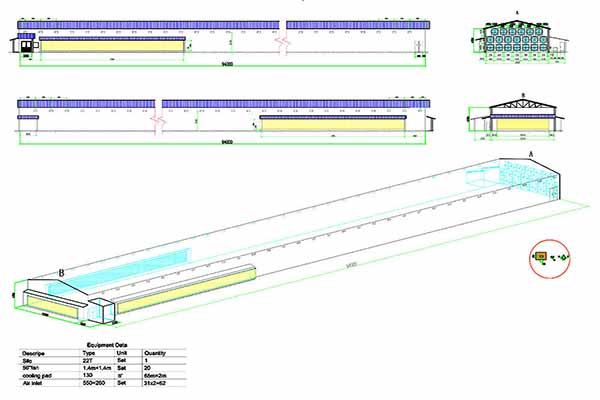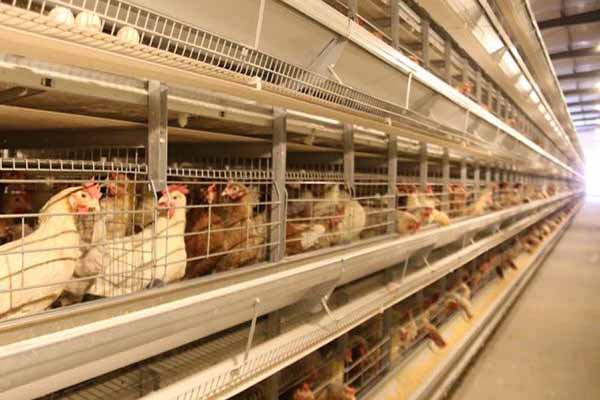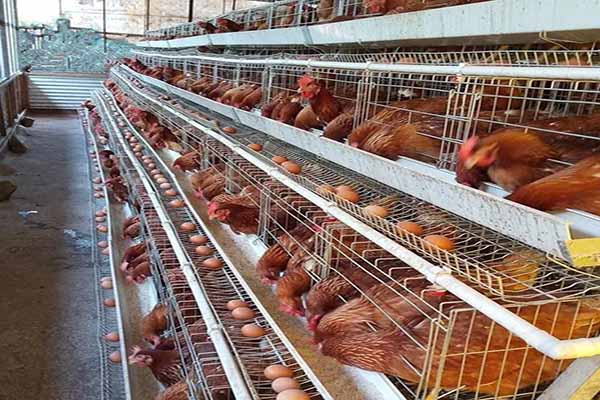Uganda Local Chicken Equipment: Agent’s Guide to Selecting the Right Equipment
Time : 2025-06-30
Uganda, known for its vibrant agricultural sector, has seen a significant rise in the demand for local chicken equipment. As an equipment agent in Uganda, it is crucial to understand the intricacies of the market and the specific needs of chicken farmers. This article aims to provide a comprehensive guide on selecting the right chicken equipment, tailored to the local market in Uganda.
Understanding the Local Chicken Industry in Uganda
The Ugandan chicken industry is diverse, ranging from small-scale backyard farms to large-scale commercial operations. Local chicken breeds, such as the Kigali and the Gikondo, are popular due to their adaptability and hardiness. Understanding the local breeds is the first step in selecting the appropriate equipment.
Local Chicken Breeds and Their Requirements
Local chicken breeds like the Kigali and the Gikondo require specific care and equipment. These breeds are well-suited to the local climate and can thrive in various conditions. However, they do have specific needs that must be addressed through the right equipment.
- Shelter and Coops: Local breeds often require coops that provide adequate ventilation and protection from predators and extreme weather conditions.
- Feeding Equipment: The right feeding equipment should cater to the specific dietary needs of local breeds, ensuring optimal health and growth.
- Watering Systems: Access to clean, fresh water is essential. The watering systems should be durable and easy to maintain.
Key Equipment for Local Chicken Farms in Uganda
1. Chicken Coops
Coops are the cornerstone of any chicken farm. In Uganda, the following factors should be considered when selecting a coop:

- Size and Space: Ensure the coop is spacious enough for the chickens to move around comfortably, but not so large that it becomes difficult to manage.
- Material: Use durable, weather-resistant materials that can withstand the local climate.
- Security: Coops should be secure to protect against predators and theft.
2. Feeding Equipment
Feeding equipment is vital for ensuring that chickens receive the right nutrition. In Uganda, consider the following:
- Automatic Feeders: Automated feeders can help manage feed distribution, especially for larger farms.
- Feeders Type: The type of feeder should be suitable for the specific type of feed and the size of the chickens.
- Quality of Feed: Ensure the feeders are designed to prevent feed spoilage and wastage.
3. Watering Systems
Access to clean water is crucial for the health of chickens. In Uganda, consider the following:
- Waterers: Choose waterers that are easy to clean and resistant to corrosion.
- Water Quality: Ensure the waterers are designed to filter out contaminants and provide clean water.
- Maintenance: The watering system should be easy to maintain and repair.
4. Health and Welfare Equipment
Proper health and welf are equipment are essential for disease prevention and chicken welfare. In Uganda, consider the following:
are equipment are essential for disease prevention and chicken welfare. In Uganda, consider the following:
- Vaccination Equipment: Ensure you have the necessary equipment for administering vaccinations, such as syringes and needles.
- Health Monitoring Tools: Invest in tools for monitoring the health of the flock, such as thermometers and scales.
- Comfortable Laying Boxes: Provide comfortable laying boxes for the hens to lay their eggs in.
Choosing the Right Supplier for Local Chicken Equipment
Selecting the right supplier is as important as choosing the right equipment. Here are some tips for finding a reliable supplier in Uganda:
- Research: Look for suppliers with a good reputation and a history of providing quality products and services.
- Customization: Ensure the supplier can customize equipment to meet the specific needs of your clients.
- Support and After-Sales Service: Choose a supplier that offers excellent customer support and after-sales service.
Conclusion
As an equipment agent in Uganda’s local chicken industry, understanding the specific needs of local breeds and  selecting the right equipment is crucial for the success of your clients’ farms. By considering the factors outlined in this guide, you can provide valuable expertise to help farmers improve their operations and increase their productivity.
selecting the right equipment is crucial for the success of your clients’ farms. By considering the factors outlined in this guide, you can provide valuable expertise to help farmers improve their operations and increase their productivity.











